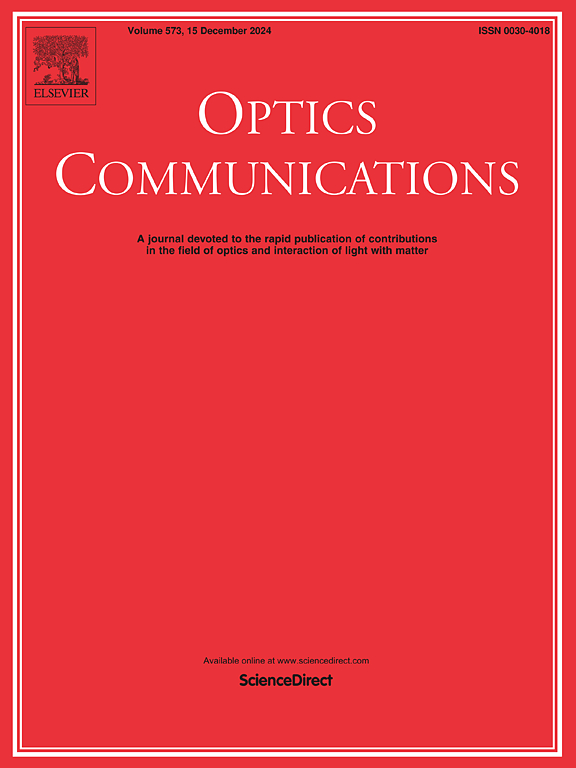波动自由空间量子信道上与测量设备无关的连续可变量子密钥分发
IF 2.2
3区 物理与天体物理
Q2 OPTICS
引用次数: 0
摘要
大气湍流造成的透射率波动将影响自由空间连续可变测量设备无关量子密钥分发(CV MDI QKD)。最近,Ghalaii 和 Pirandola(2023 年)的一项研究证明,即使在强集体窃听场景下,CV MDI QKD 协议也能在数百米的自由空间信道上实现可兼容的安全性,而不会产生相关波动。本文研究了考虑透射率波动的自由空间 CV MDI QKD。我们用集合平均的方法分析了自由空间 CV MDI QKD 的安全性。此外,我们还利用后选择策略评估了与波动传输率相关的密钥率。结论是后选策略能显著提高秘钥率,尤其是在处理有限尺寸效应时。此外,与 Ghalaii 和 Pirandola(2023 年)中只使用集合平均而不使用后选择以及无波动策略相比,后选择能实现更高的秘钥率。本文章由计算机程序翻译,如有差异,请以英文原文为准。
Continuous-variable measurement-device-independent quantum key distribution over fluctuated free space quantum channels
The fluctuations in transmittance caused by atmospheric turbulence will impact the free space continuous-variable measurement-device-independent quantum key distribution (CV MDI QKD). Recently, a study in Ghalaii and Pirandola (2023) has demonstrated that the CV MDI QKD protocol is capable of achieving composable security over hundreds of meters free-space channels without concerning fluctuations even in strong collective eavesdropping scenario. In this paper, we investigate the free-space CV MDI QKD by taking the transmittance fluctuations into account. We analyze the security of free-space CV MDI QKD with the methodology of ensemble average. Also, the secret key rates are evaluated by use of the post-selection strategy with respect to the fluctuated transmittance. It is concluded that the post-selection strategy can significantly improves the secret key rate, especially when dealing with the finite size effect. Additionally, the post-selection enables a higher secret key rate compared to solely using ensemble average without post-selection as well as fluctuation-free strategy in Ghalaii and Pirandola (2023).
求助全文
通过发布文献求助,成功后即可免费获取论文全文。
去求助
来源期刊

Optics Communications
物理-光学
CiteScore
5.10
自引率
8.30%
发文量
681
审稿时长
38 days
期刊介绍:
Optics Communications invites original and timely contributions containing new results in various fields of optics and photonics. The journal considers theoretical and experimental research in areas ranging from the fundamental properties of light to technological applications. Topics covered include classical and quantum optics, optical physics and light-matter interactions, lasers, imaging, guided-wave optics and optical information processing. Manuscripts should offer clear evidence of novelty and significance. Papers concentrating on mathematical and computational issues, with limited connection to optics, are not suitable for publication in the Journal. Similarly, small technical advances, or papers concerned only with engineering applications or issues of materials science fall outside the journal scope.
 求助内容:
求助内容: 应助结果提醒方式:
应助结果提醒方式:


